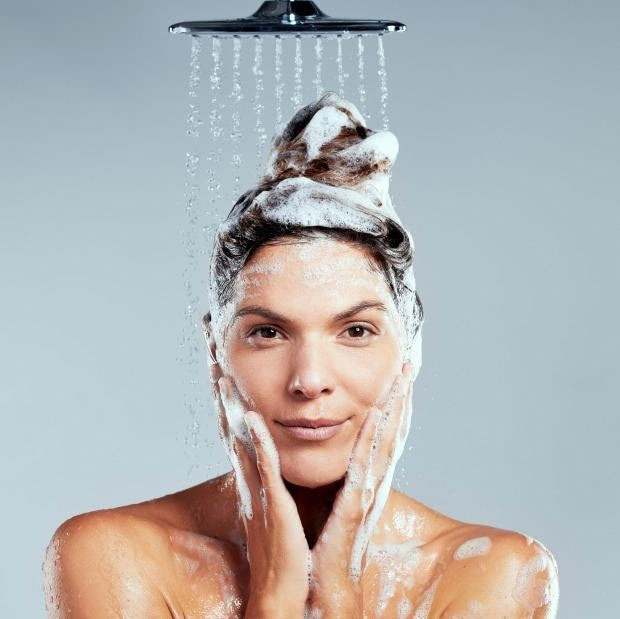Most people bathe at least once a day. However, experts suggest that such frequency may be excessive and not beneficial for health.
Research indicates that 55% of the population bathes at least once daily. Nonetheless, experts believe that most of us are bathing too frequently, and reducing the number of baths may be better for our health.

Experts advise against bathing too frequently.
Professor Sally Bloomfield from the London School of Hygiene and Tropical Medicine in London, UK, states that daily bathing or face washing is not essential. The reason people clean their bodies every day is to gain social acceptance. Frequent bathing primarily aims to eliminate unpleasant body odors.
According to the expert, washing the face too often can disrupt the body’s self-regulating microbiome. These microorganisms help us control oil levels on the skin, keeping it healthy.
“For me, we do not need to wash our face and bathe every day. There are bacteria on our bodies that produce unpleasant odors, but they are not harmful. The reason we bathe is to remove those smells and feel more comfortable,” Bloomfield shared on BBC Radio 5 Live Breakfast.
In agreement, Dr. Robert H. Shmerling from Harvard Medical School (USA) reveals that frequent face washing may make individuals more susceptible to harmful bacteria.
He explains that showering can lead to dry and cracked skin, creating opportunities for bacteria to penetrate the skin, causing infections and allergic reactions.
“Our immune system needs a certain amount of stimulation from normal microorganisms, dirt, and other environmental contacts to produce protective antibodies and ‘immune memory’ (the ability of the immune system to quickly and specifically recognize an antigen that the body has encountered before and initiate an appropriate immune response). This is one reason pediatricians and dermatologists advise against daily bathing for children. Frequent bathing can diminish the immune system’s capabilities,” Shmerling points out.

Daily bathing may kill beneficial microorganisms on the skin.
The doctor further analyzes that some soaps containing antibacterial properties can eliminate good bacteria. This disrupts the balance of microorganisms on the skin and promotes the emergence of resilient, less friendly microorganisms that are likely to be more antibiotic-resistant.


















































